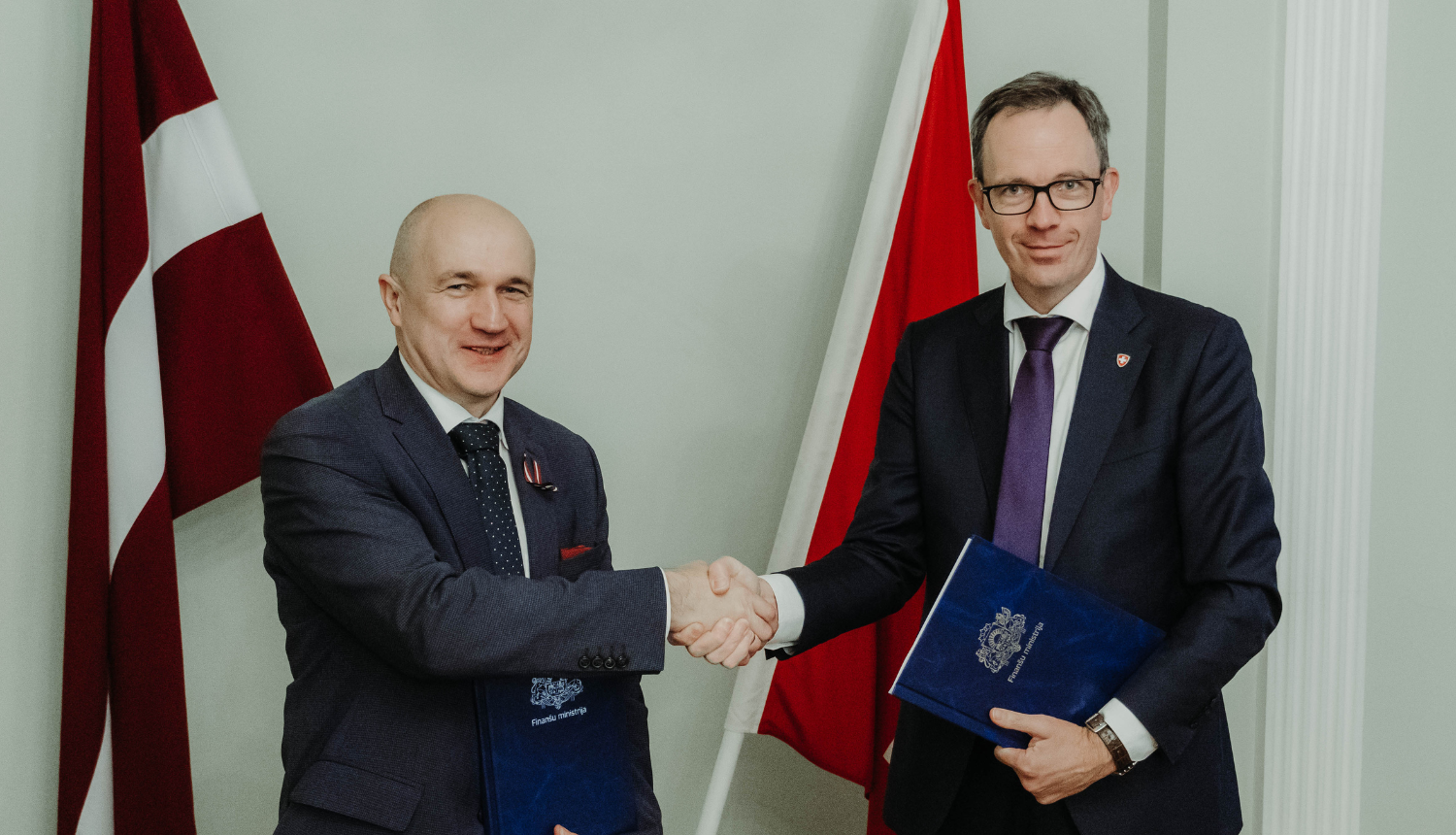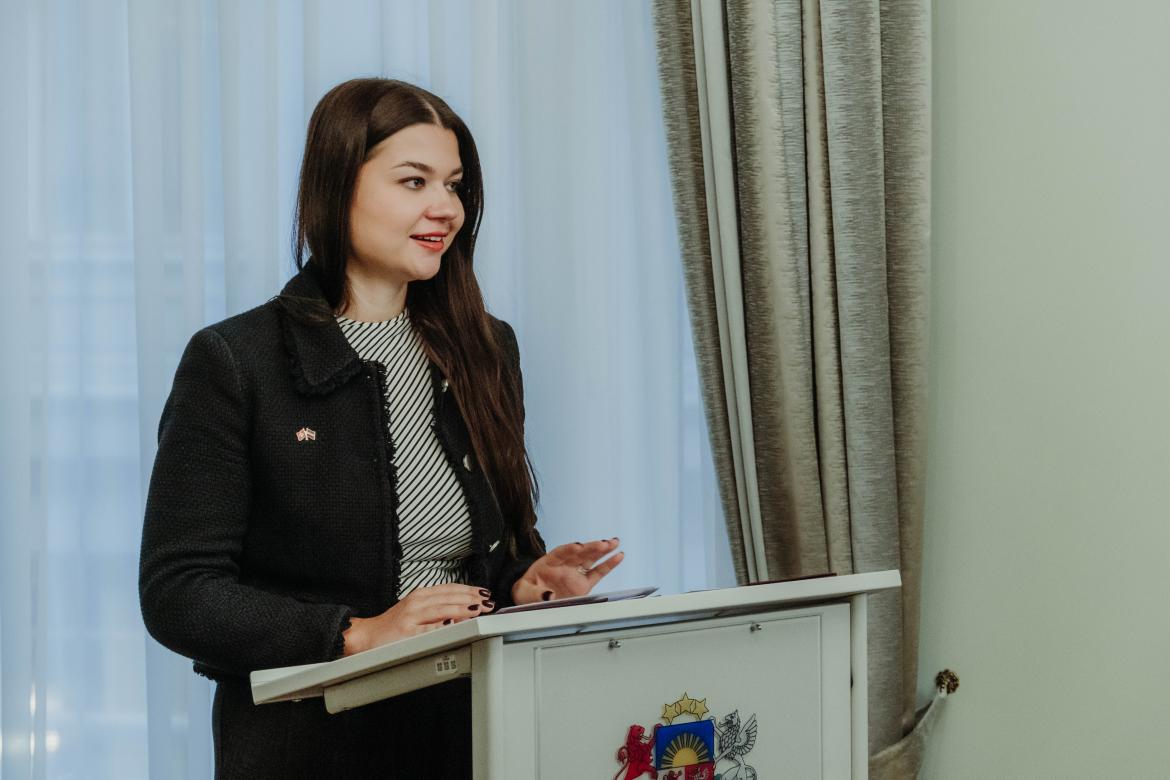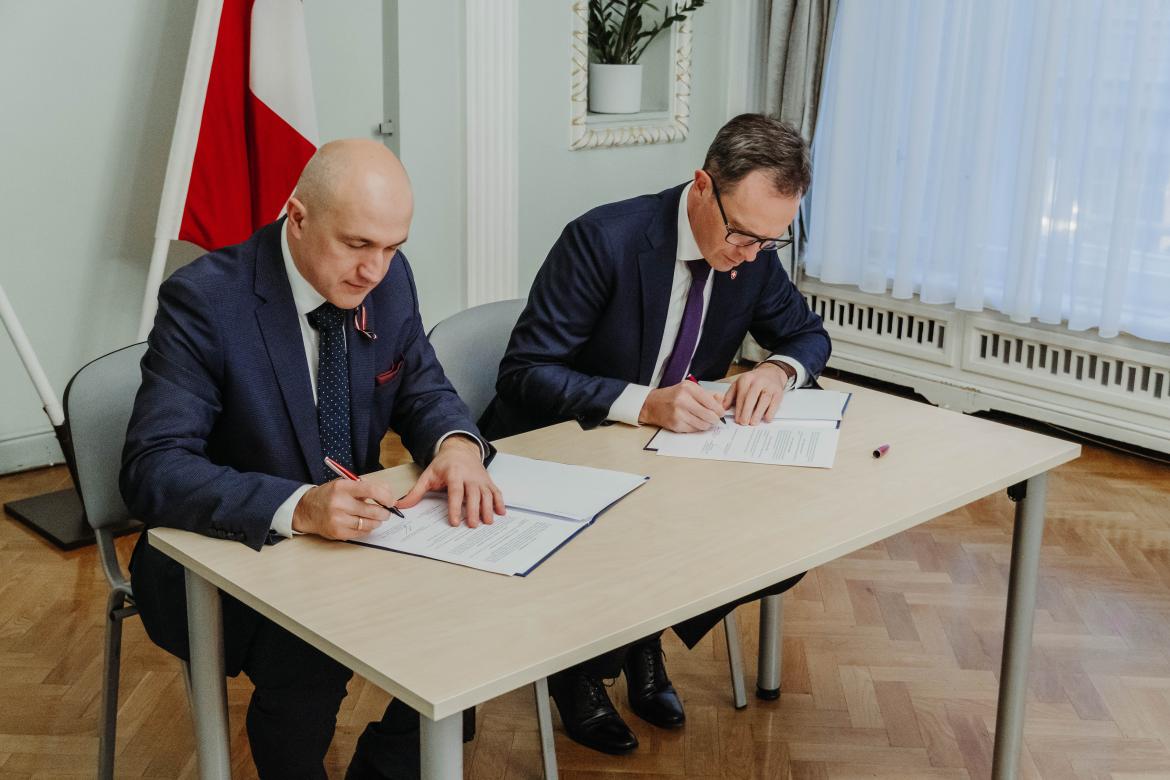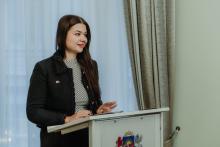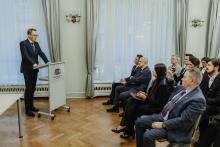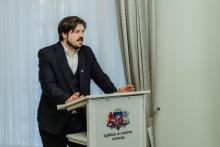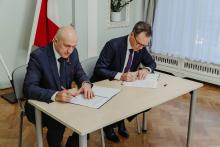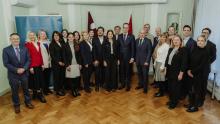On Wednesday, November 13, the Ambassador of the Swiss Confederation to Latvia, Martin Michelet, and the Deputy State Secretary of the Ministry of Finance for European Union (EU) funds, Armands Eberhards, signed an agreement for the "Applied Research" program. This program aims to develop the capacity for applied research and promote collaboration between Latvia and Switzerland in the fields of innovative materials, information and communication technologies (ICT), and smart energy.
The program has a budget of 12.3 million euros (85% Swiss funding and 15% Latvian state budget funding), and it will be implemented from January 2025 to September 2029. The program will strengthen the research and innovation knowledge base in Latvia, supporting economic transformation and sustainable growth. Latvian research institutions will have the opportunity to collaborate with Swiss institutions on joint projects, improving research quality and increasing the number of highly qualified professionals with advanced technological knowledge. The program will also include activities to encourage the interest and understanding of young people, particularly girls, in advanced technologies.
Ambassador of the Swiss Confederation, Martin Michelet: "The 'Applied Research' program signed today responds to the current needs of cooperation: through partnerships, we support the transformation of the economy and sustainable growth, and we turn academic insights into practical applications that will benefit both businesses and society. This program will create opportunities for young researchers, especially young women and researchers from regions outside the capital. By promoting STEM (Science, Technology, Engineering, and Mathematics) understanding, we are nurturing the next generation of innovators who will drive Latvia's growth in the future."
Armands Eberhards, Deputy State Secretary of the Ministry of Finance for EU Funds: "The cooperation in the first Swiss contribution in higher education and research has provided new experiences by raising internal academic and research quality standards and providing new collaboration opportunities between institutions and researchers. This has served as a good starting point for the next phase of Swiss-Latvian scientific cooperation. Within this phase, promising partnerships will be established, particularly in the field of advanced materials, such as concrete and asphalt, thanks to long-standing cooperation with the Swiss partner, the Materials Science and Technology Laboratory, which offers extensive research experience. We also look forward to new partnerships in the fields of ICT and smart energy research."
Silvija Amatniece, Parliamentary Secretary of the Ministry of Education and Science: "I am pleased that, thanks to the contribution from the Swiss Confederation, we can implement the 'Applied Research' program, which is so important for Latvia's growth. Cooperation with Switzerland, one of the world's leaders in innovation, provides Latvia with a unique opportunity to increase our involvement in global science and innovation efforts. The country's sustainable future cannot be imagined without the transformation of the green and digital economy, research quality, and international cooperation."
The "Applied Research" program consists of two predefined projects. The first will be carried out by the Riga Technical University (RTU) in collaboration with the Swiss Federal Laboratories for Materials Science and Technology Concrete and Asphalt Laboratory. This project will promote research and innovation in materials, increasing the lifecycle of asphalt pavement and creating new road surface materials, such as 3D printed concrete with local minerals.
The second project's goal is to improve smart grids and energy storage by using artificial intelligence (AI) tools for real-time stability assessment and maintenance of the Baltic electricity grid, as well as enhancing materials for hydrogen production catalysts and energy storage in batteries. As a result, the Baltic states' dependence on foreign fossil fuels will decrease, opening up opportunities for cleaner energy production. The project will be implemented by the Institute of Solid-State Physics of the University of Latvia in partnership with the Institute of Electronics and Computer Science and RTU, while Switzerland will be represented by the Paul Scherrer Institute, Zurich University of Applied Sciences, and the Swiss Center for Electronics and Microtechnology.
For additional information read here.
Photo: Ministry of Education and Science
